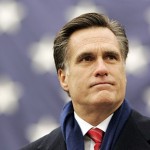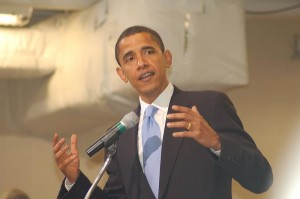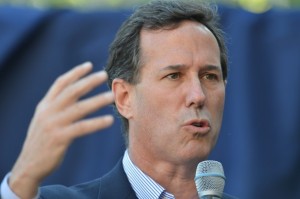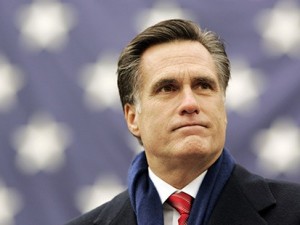By Artur Davis, on Tue May 8, 2012 at 8:30 AM ET  It is Lyndon Baines Johnson’s fate that as much as he was venerated during his career for his raw skills, he is remembered today largely as a colossal blunderer, by the right as a prototype of excess who spent taxpayers’ money profligately, and by the left as an adventurer who made a catastrophe out of a molehill called Vietnam. His own party, while framing the signature achievements in his domestic record–Medicare, the Voting Rights Act–as a secular temple that Republicans must be kept from dismantling, simultaneously avoids awarding Johnson much of the credit. His image is as grainy as the black and white television reels of his era, as harsh and remote as the perpetual grimace on his face in the footage from those reels. It is Lyndon Baines Johnson’s fate that as much as he was venerated during his career for his raw skills, he is remembered today largely as a colossal blunderer, by the right as a prototype of excess who spent taxpayers’ money profligately, and by the left as an adventurer who made a catastrophe out of a molehill called Vietnam. His own party, while framing the signature achievements in his domestic record–Medicare, the Voting Rights Act–as a secular temple that Republicans must be kept from dismantling, simultaneously avoids awarding Johnson much of the credit. His image is as grainy as the black and white television reels of his era, as harsh and remote as the perpetual grimace on his face in the footage from those reels.
Robert Caro’s latest entry in his opus on LBJ, “Passage to Power”, will do something to revive the 36th president’s reputation. It spans from Johnson’s inept, misconceived effort to win the presidency in 1960—a race which he never embraced and never seemed to think he should, much less would, win—to the stretch in the wilderness as John Kennedy’s vice president; to Johnson’s frenetic succession to power after November 22, 1963. Unexpectedly, the narrative stops in the spring of 1964, short of the demolition of Barry Goldwater, and well short of the 1965 legislative season that was Johnson’s epic moment. Caro’s readers will recognize that he has rarely felt bound by the precision of a conventional biographical framework and has stopped and started these volumes based on his own sense of rhythm and his perspective on which details best illuminate his much misunderstood subject.
 So, the last and next edition is the one that will take on the well worn tale of Johnson going up and down Mt. Olympus between the 64 election and the fall from grace in 1968. This narrative dwells on the less familiar struggles of a politician who was unsuited to the changes that television and the atrophy of the establishment were effecting during the 1960 election; and to the almost as forgotten description of a president seeking to convert an unprecedented public moment, the assassination of a leader with an unfulfilled and active agenda, into a legislative program on Capitol Hill, in a political climate that was decidedly more right-leaning and resistant to change than is currently appreciated. So, the last and next edition is the one that will take on the well worn tale of Johnson going up and down Mt. Olympus between the 64 election and the fall from grace in 1968. This narrative dwells on the less familiar struggles of a politician who was unsuited to the changes that television and the atrophy of the establishment were effecting during the 1960 election; and to the almost as forgotten description of a president seeking to convert an unprecedented public moment, the assassination of a leader with an unfulfilled and active agenda, into a legislative program on Capitol Hill, in a political climate that was decidedly more right-leaning and resistant to change than is currently appreciated.
Read the rest of…
Artur Davis: The No Longer Practiced Politics of LBJ
By John Y. Brown III, on Mon May 7, 2012 at 10:00 AM ET  Derby brush with celebrities….. Derby brush with celebrities…..
OK…yeah, I went to Derby…and, yeah, I tried spotting the celebs. I saw Fred Willard (who is a great comic I have long admired). I saw three people who seemed to be Brad Pitt but none were. I saw two people who appeared to be Cindi Lauper and one was.
For the past few years I’ve watched “The Real Housewives of….(fill in the blank with a city)” with my wife.
Yes, it was my wife’s idea. But only at first. What I didn’t realize is that watching that show was really just preparation for today’s big moment when I met Vicki Gunvalson, Real Housewife of Orange County.
 My good friend John Esham (right) and I approached The OC Real Housewife and found her very very approachable and pleasant. My good friend John Esham (right) and I approached The OC Real Housewife and found her very very approachable and pleasant.
Of course, this picture with Vicki Gunvalson was really just a ruse for John and I to get our picture taken with authentic Louisville celeb and Unbridled Eve impresario, Tonya York Dees.
By Kristen Soltis, on Mon May 7, 2012 at 8:30 AM ET  Having weathered the tense, topsy-turvy contest for the Republican presidential nomination, Mitt Romney now moves into the next chapter of the 2012 campaign. But how that next chapter reads is yet to be determined. Having weathered the tense, topsy-turvy contest for the Republican presidential nomination, Mitt Romney now moves into the next chapter of the 2012 campaign. But how that next chapter reads is yet to be determined.
The departure of Rick Santorum from the race has sparked debate about how much Romney will need to “fire up the base” as he moves forward in order to turn out very conservative voters in November. Yet as voters grow increasingly frustrated with both parties, it is disaffected voters and disappointed independents who will be most decisive in this coming election.
The great news for Romney is that, no matter how you slice the electorate into target groups, the economy and jobs are the top issues on voters’ minds.
 This is not an election that will be decided on social or cultural issues. This is not an election that will be decided on social or cultural issues.
Despite Democrats’ efforts to turn fundamentally economic and fiscal issues into cultural issue wedges, the election will not hinge on issues like free contraception or funding for Planned Parenthood.
The White House will go to the candidate who voters believe truly has a plan to create jobs and grow the economy.
Read the rest of…
Kristen Soltis: One Approach, For Two Audiences
By Artur Davis, on Fri Apr 27, 2012 at 8:30 AM ET There is the conservative critique of Barack Obama that contends that he has grown the size and scope of government too much; then there is the liberal charge that he has moved to the middle and forfeited the progressive moment. The first is more true, the second more stinging to an administration that believes it is on the verge of breaking the political right.
There is a third case, however, that is tied not to a theory of how big or small government should be but to the idea that a leader has obligations to speak with precision and clarity about the nature of the country’s burdens. By that elusive standard, the famously slippery Bill Clinton still fares well on an issue like welfare reform, where he reminded his base that an entitlement that penalizes work is a social disaster. Jimmy Carter, for that matter, deserves points for an energy policy that meant to cap the rising dependence on foreign oil at 1978 import levels, which had future presidents stuck to his efforts, would have us paying $2.25 at the gas pump.
President Obama gets low marks on the precision and the clarity scale when he outlines a budgetary vision that treats Medicare and Social Security as asterisks and not the biggest driver of deficits, and trusts the future of Medicare in particular to the old trope of going after “waste, fraud and abuse.” He gets similarly low marks when his defense of healthcare reform channels Newt Gingrich’s tirade about unelected judges trumping our venerable elected congressmen (whose job rating bats .100) And he gets barely passing grades on his case for the Buffett Rule, a kind of minimum tax for millionaires that would trim the deficit next year by the grand sum of a tenth of one percent while diminishing charitable giving much more.
Read the rest of…
Artur Davis: The Shrinking Obama Vision
By Artur Davis, on Wed Apr 25, 2012 at 8:30 AM ET  Hilary Rosen’s put-down of Ann Romney has operated in a remarkably generous manner for all sides of the dispute. For Republicans, the incident has been galvanizing, sympathetically raising the profile of Mitt Romney’s strongest validator, and reviving familiar arguments about liberal condescension toward traditional family structures. For Team Obama, the lightning fast denunciations of Rosen were an opportunity to claim solidarity with non professional married females who have lagged in their enthusiasm for the president in most surveys; and to simultaneously highlight the wealth gap between the Romneys and those same non professional marrieds. Hilary Rosen’s put-down of Ann Romney has operated in a remarkably generous manner for all sides of the dispute. For Republicans, the incident has been galvanizing, sympathetically raising the profile of Mitt Romney’s strongest validator, and reviving familiar arguments about liberal condescension toward traditional family structures. For Team Obama, the lightning fast denunciations of Rosen were an opportunity to claim solidarity with non professional married females who have lagged in their enthusiasm for the president in most surveys; and to simultaneously highlight the wealth gap between the Romneys and those same non professional marrieds.
 Even for Hilary Rosen, while her 33rd visit to the White House has been indefinitely postponed, she is now another previously interchangeable DC consultant whose business will thrive from the glow of 15 minutes of fame. Even for Hilary Rosen, while her 33rd visit to the White House has been indefinitely postponed, she is now another previously interchangeable DC consultant whose business will thrive from the glow of 15 minutes of fame.
So, spare the ritualistic outrage over the Rosen comment, and the dissection of whether she was an aberration or just speaking out of school, long enough to consider the following: an election that seemed destined to be about job growth and consumer confidence is taking on broader dimensions.
Read the rest of…
Artur Davis: The Culture War Begins
By Jeff Smith, on Fri Apr 20, 2012 at 8:30 AM ET  Grassley’s tweet went too far. Grassley’s tweet went too far.
Yes, the president was guilty of hyperbole: although it is unusual for the Court to declare laws unconstitutional (once or twice a year on average), it is not unprecedented, as the president said.
Still, that doesn’t mean a senator should call the President of the United States “stupid.” While microblogging encourages impulsive bursts of misplaced candor/emotion, Grassley could have easily – in 140 characters – noted that the president had exaggerated, or questioned the president’s decision to take on the Court.
I will be interested to see if Grassley notes any of Mitt Romney’s serial exaggerations and distortions, which Dana Milbank nicely sums up in yesterday’s piece “The Facts vs. Mitt Romney.”
(Cross-posted, with permission of the author, from Politico’s Arena)
By Artur Davis, on Thu Apr 19, 2012 at 8:30 AM ET  When Barack Obama is not being re-cast as a principled defender of progressive values, his defenders in the press try another sleight-of-hand, defining him as a pragmatist desperately seeking responsible Republicans with whom to cut deals. Enter Paul Krugman’s latest column, “The Gullible Center”,which is a warmed over attack on Paul Ryan’s “extremism” (the ninth from the New York Times editorial pages in seven days, but who’s counting) and a mildly more original jab at moderates who allegedly lavish the undeserved label on seriousness on Ryan’s budget cutting, while missing the genuine article in President Obama. When Barack Obama is not being re-cast as a principled defender of progressive values, his defenders in the press try another sleight-of-hand, defining him as a pragmatist desperately seeking responsible Republicans with whom to cut deals. Enter Paul Krugman’s latest column, “The Gullible Center”,which is a warmed over attack on Paul Ryan’s “extremism” (the ninth from the New York Times editorial pages in seven days, but who’s counting) and a mildly more original jab at moderates who allegedly lavish the undeserved label on seriousness on Ryan’s budget cutting, while missing the genuine article in President Obama.
A few observations about Krugman’s revisionism. First, I’m not exactly a Ryan devotee for a variety of reasons: marginal tax rate reductions are overstated in Ryan’s model as a tool of economic growth; at the same time, his plan leaves too little room for additional investments in worker retraining, infrastructure, and education (it is particularly worrisome that he would leave Washington with fewer resources to incentivize the wholesale reforms on education that have to be effected at the state level) and it slices out too many elements of the safety net without doing a rigorous accounting of what has and hasn’t worked. Budgeting, Ryan style, is much too vulnerable to the criticism that it is a theory of emasculated government and an ideological tool rather than a blueprint for expanded prosperity.
 But the notion that President Obama is the misunderstood centrist in the budget wars? It’s a fantasy; to paraphrase Krugman’s closing jab at moderates, a naked conceit that has not much substance. Obama’s current budget repeats his minimalist approach to entitlements from last year—a series of mini-measures on cost reduction for Medicare, no rethinking whatsoever of how to restore Social Security to a safety net rather than a substantial net windfall for its beneficiaries. While Ryan has at least traded future structural realignments in Medicare for a safe haven for current beneficiaries, Obama resists countering Ryan, by defending the status quo while outlining an alternative of what a sustainable future looks like. To the contrary, Obama’s budgetary approach to Medicare and for that matter Obamacare mimics conservatives when they load all manner of unrealistic growth assumptions on top of their tax cut proposals: Obama’s version of fanciful thinking is the cost-cutting from comparative efficiency techniques that may or not survive congressional review, and that may or may not be scalable. But the notion that President Obama is the misunderstood centrist in the budget wars? It’s a fantasy; to paraphrase Krugman’s closing jab at moderates, a naked conceit that has not much substance. Obama’s current budget repeats his minimalist approach to entitlements from last year—a series of mini-measures on cost reduction for Medicare, no rethinking whatsoever of how to restore Social Security to a safety net rather than a substantial net windfall for its beneficiaries. While Ryan has at least traded future structural realignments in Medicare for a safe haven for current beneficiaries, Obama resists countering Ryan, by defending the status quo while outlining an alternative of what a sustainable future looks like. To the contrary, Obama’s budgetary approach to Medicare and for that matter Obamacare mimics conservatives when they load all manner of unrealistic growth assumptions on top of their tax cut proposals: Obama’s version of fanciful thinking is the cost-cutting from comparative efficiency techniques that may or not survive congressional review, and that may or may not be scalable.
Read the rest of…
Artur Davis: The “Obama is a Moderate” Fantasy
By Artur Davis, on Tue Apr 17, 2012 at 8:30 AM ET  Some post-mortems on Rick Santorum’s partly admirable, partly vexing candidacy: First, his is a campaign that can credibly spend energy on the “what-if” game. That distinguishes him from Herman Cain, Rick Perry, and Michele Bachmann, all of whom were so thin in national campaign skills, or so palpably unprepared to be president, that no assembly of tactics would have gotten them there. Some post-mortems on Rick Santorum’s partly admirable, partly vexing candidacy: First, his is a campaign that can credibly spend energy on the “what-if” game. That distinguishes him from Herman Cain, Rick Perry, and Michele Bachmann, all of whom were so thin in national campaign skills, or so palpably unprepared to be president, that no assembly of tactics would have gotten them there.
I’ve believed since the night of his Iowa speech that Santorum did have a pathway. It involved owning a unique economic message, one that chastised both Wall Street and Washington for breaching the social compact, and one that recognized that middle class anxiety has cultural and economic roots. He could have so easily broadened that theme by embracing tough education reforms and a crackdown on special interest influence. He could have wielded the Bain Capital card much more credibly than Newt Gingrich.
 For a mix of reasons—the lack of a strategic thinker in his campaign circle, an undisciplined communications style, and way too much time arguing process and electability instead of ideas–Santorum never polished the smart populism that I described above. Instead of becoming the “creative, new ideas” alternative to Romney, he lapsed into the politics of last conservative standing, which after his peak in February, was only good enough for the Deep South and a string of solid seconds. It’s a gambit that might have worked against a Giuliani or a Huntsman; but against a mainstream conservative like Romney, whom the right found acceptable if unexciting, the game plan was too cautious and too uninspiring. For a mix of reasons—the lack of a strategic thinker in his campaign circle, an undisciplined communications style, and way too much time arguing process and electability instead of ideas–Santorum never polished the smart populism that I described above. Instead of becoming the “creative, new ideas” alternative to Romney, he lapsed into the politics of last conservative standing, which after his peak in February, was only good enough for the Deep South and a string of solid seconds. It’s a gambit that might have worked against a Giuliani or a Huntsman; but against a mainstream conservative like Romney, whom the right found acceptable if unexciting, the game plan was too cautious and too uninspiring.
Read the rest of…
Artur Davis: A Santorum Post-Mortem
By Zac Byer, on Mon Apr 16, 2012 at 3:00 PM ET
 Good afternoon, and welcome to another edition of Prix Fixe Politics! It’s now unofficially general election season, so you can finally rest assured Sarah Palin won’t be coming out of hibernation to join the race. Here’s today’s menu…
But first – in the last edition, I asked a question in the Appetizer about what Americans want most in 2012. If you said men want more money, and women want more time, you have your finger on the pulse of the American electorate. Thanks to all who participated, and as promised, I have used the fancy algorithm of pulling a number out of a hat to pick the winner. Sakina Zaidi, a Penn classmate of mine and formerly of Bain Capital, is the lucky one, so I will be treating her to drinks in…Addis Ababa, Ethiopia. Because I don’t see a trip to the Horn of Africa in the near future, Sakina can claim her prize when she is back stateside; in the meantime, I will treat Nick Eng, another classmate of mine and currently a consultant with Diamond Management and Technology, next time I’m in New York City.
 Appetizer: Appetizer: A piece of data you should keep your eye on as we head toward summer is the Consumer Confidence Index (CCI). CCI ignores contentious social issues and wedge issues, focusing on current economic conditions and voters’ future expectations for business, employment, and personal income. The last 40 years show a potentially game-changing correlation: If the CCI is at 100 or higher, the incumbent party has a significant advantage in its bid to retain the White House. In October 2008, for example, the CCI was a paltry 52. Gas prices had skyrocketed, the beginnings of the recession were among us, and John McCain ended up losing the election. Since the 1972 election between Richard Nixon and George McGovern, the CCI has correctly predicted the outcome of 9/10 of the presidential elections (the notable exception being 2000, in which incumbent-party candidate Al Gore won the popular vote). So, where do things stand now? As of the end of March, the CCI stood at 70.2. As Democrat strategist James Carville said to Bill Clinton in his 1992 campaign, “It’s the economy, stupid!”
Read the rest of…
Zac Byer — Prix Fixe Politics, April 16
By Jeff Smith, on Mon Apr 16, 2012 at 10:00 AM ET  Media victim? Seriously? He’s a media victim in the same way that Kim Kardashian is: every dollar they raise/make is due entirely to their shameless exploitation of media fascination with them as opposed to any iota of talent they might possess. Media victim? Seriously? He’s a media victim in the same way that Kim Kardashian is: every dollar they raise/make is due entirely to their shameless exploitation of media fascination with them as opposed to any iota of talent they might possess.
These two peas-in-a-pod exemplify the modern-day media corollary of “If it bleeds, it leads,” which is “If it screams – or has implants – it leads.”
This episode will inevitably help him raise more money from the nutjob base, which helps him. But I don’t know enough about the dynamics of his new district to say whether it hurts him with actual swing voters.
People who talk about him seriously as a VP prospect should immediately report back to the asylum from which they’ve escaped.
(Cross-posted, with permission of the author, from Politico’s Arena)
|
The Recovering Politician Bookstore
|
 It is Lyndon Baines Johnson’s fate that as much as he was venerated during his career for his raw skills, he is remembered today largely as a colossal blunderer, by the right as a prototype of excess who spent taxpayers’ money profligately, and by the left as an adventurer who made a catastrophe out of a molehill called Vietnam. His own party, while framing the signature achievements in his domestic record–Medicare, the Voting Rights Act–as a secular temple that Republicans must be kept from dismantling, simultaneously avoids awarding Johnson much of the credit. His image is as grainy as the black and white television reels of his era, as harsh and remote as the perpetual grimace on his face in the footage from those reels.
It is Lyndon Baines Johnson’s fate that as much as he was venerated during his career for his raw skills, he is remembered today largely as a colossal blunderer, by the right as a prototype of excess who spent taxpayers’ money profligately, and by the left as an adventurer who made a catastrophe out of a molehill called Vietnam. His own party, while framing the signature achievements in his domestic record–Medicare, the Voting Rights Act–as a secular temple that Republicans must be kept from dismantling, simultaneously avoids awarding Johnson much of the credit. His image is as grainy as the black and white television reels of his era, as harsh and remote as the perpetual grimace on his face in the footage from those reels. So, the last and next edition is the one that will take on the well worn tale of Johnson going up and down Mt. Olympus between the 64 election and the fall from grace in 1968. This narrative dwells on the less familiar struggles of a politician who was unsuited to the changes that television and the atrophy of the establishment were effecting during the 1960 election; and to the almost as forgotten description of a president seeking to convert an unprecedented public moment, the assassination of a leader with an unfulfilled and active agenda, into a legislative program on Capitol Hill, in a political climate that was decidedly more right-leaning and resistant to change than is currently appreciated.
So, the last and next edition is the one that will take on the well worn tale of Johnson going up and down Mt. Olympus between the 64 election and the fall from grace in 1968. This narrative dwells on the less familiar struggles of a politician who was unsuited to the changes that television and the atrophy of the establishment were effecting during the 1960 election; and to the almost as forgotten description of a president seeking to convert an unprecedented public moment, the assassination of a leader with an unfulfilled and active agenda, into a legislative program on Capitol Hill, in a political climate that was decidedly more right-leaning and resistant to change than is currently appreciated. 

















